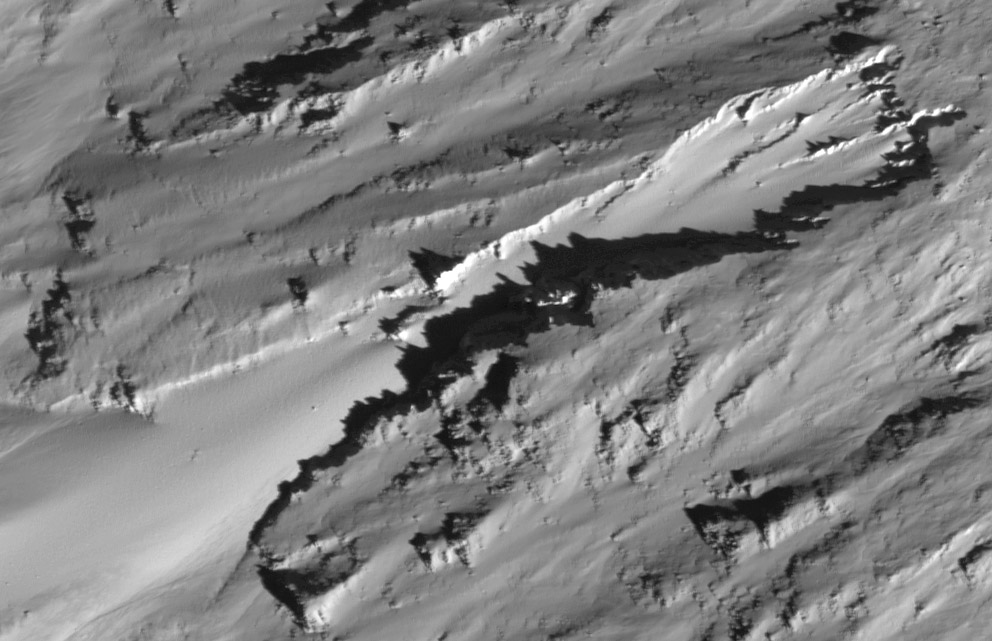Difference between revisions of "November 25, 2010"
| Line 1: | Line 1: | ||
__NOTOC__ | __NOTOC__ | ||
=Snow Drifts?= | =Snow Drifts?= | ||
| − | |||
<!-- ws:start:WikiTextHeadingRule:1:<h1> --> | <!-- ws:start:WikiTextHeadingRule:1:<h1> --> | ||
<!-- ws:start:WikiTextLocalImageRule:16:<img src="/file/view/LPOD-Nov25-10.jpg/182548707/LPOD-Nov25-10.jpg" alt="" title="" /> -->[[File:LPOD-Nov25-10.jpg|LPOD-Nov25-10.jpg]]<!-- ws:end:WikiTextLocalImageRule:16 --><br /> | <!-- ws:start:WikiTextLocalImageRule:16:<img src="/file/view/LPOD-Nov25-10.jpg/182548707/LPOD-Nov25-10.jpg" alt="" title="" /> -->[[File:LPOD-Nov25-10.jpg|LPOD-Nov25-10.jpg]]<!-- ws:end:WikiTextLocalImageRule:16 --><br /> | ||
| − | <em>image by [http://lroc.sese.asu.edu/news/index.php?/archives/310-Erosional-trough-on-crater-wall.html#extended LRO Featured Image] (NASA/GSFC/Arizona State University)</em><br /> | + | <em>image by [http://lroc.sese.asu.edu/news/index.php?/archives/310-Erosional-trough-on-crater-wall.html#extended" rel="nofollow LRO Featured Image] (NASA/GSFC/Arizona State University)</em><br /> |
<br /> | <br /> | ||
When I lived in North Dakota, where winter sometimes seems to last 8 months, it was common to see layers of crusty snow that were shaped by wind. Wind would erode coarse troughs, often depositing removed snow into smooth drifts. The scene above reminds me of North Dakota but also looks like erosion features on Mars that are often interpreted as downslope movement initiated by sapping by subsurface water. But this 500 m wide scene is neither wind-blown snow nor water-sapped debris, for it is on the inner rim of a small crater on the lunar farside. Presumably the movement was of dry material that slid downslope without the aid of wind or water. We know that water was available at certain times in Mars' history, so it is reasonable to consider the sapping hypothesis there; but the lunar example is a warning for Mars geologists who sometimes see water everywhere. <br /> | When I lived in North Dakota, where winter sometimes seems to last 8 months, it was common to see layers of crusty snow that were shaped by wind. Wind would erode coarse troughs, often depositing removed snow into smooth drifts. The scene above reminds me of North Dakota but also looks like erosion features on Mars that are often interpreted as downslope movement initiated by sapping by subsurface water. But this 500 m wide scene is neither wind-blown snow nor water-sapped debris, for it is on the inner rim of a small crater on the lunar farside. Presumably the movement was of dry material that slid downslope without the aid of wind or water. We know that water was available at certain times in Mars' history, so it is reasonable to consider the sapping hypothesis there; but the lunar example is a warning for Mars geologists who sometimes see water everywhere. <br /> | ||
<br /> | <br /> | ||
| − | <em>[mailto:tychocrater@yahoo.com Chuck Wood]</em><br /> | + | <em>[mailto:tychocrater@yahoo.com" rel="nofollow Chuck Wood]</em><br /> |
Happy Thanksgiving to all!<br /> | Happy Thanksgiving to all!<br /> | ||
<br /> | <br /> | ||
<hr /> | <hr /> | ||
| − | <div>You can support LPOD when you buy any book from Amazon thru [http://www.lpod.org/?page_id=591 LPOD!]<br /> | + | <div>You can support LPOD when you buy any book from Amazon thru [http://www.lpod.org/?page_id=591" rel="nofollow LPOD!]<br /> |
</div> | </div> | ||
| − | |||
---- | ---- | ||
===COMMENTS?=== | ===COMMENTS?=== | ||
Click on this icon [[image:PostIcon.jpg]] at the upper right to post a comment. | Click on this icon [[image:PostIcon.jpg]] at the upper right to post a comment. | ||
Revision as of 21:09, 4 January 2015
Snow Drifts?

image by " rel="nofollow LRO Featured Image (NASA/GSFC/Arizona State University)
When I lived in North Dakota, where winter sometimes seems to last 8 months, it was common to see layers of crusty snow that were shaped by wind. Wind would erode coarse troughs, often depositing removed snow into smooth drifts. The scene above reminds me of North Dakota but also looks like erosion features on Mars that are often interpreted as downslope movement initiated by sapping by subsurface water. But this 500 m wide scene is neither wind-blown snow nor water-sapped debris, for it is on the inner rim of a small crater on the lunar farside. Presumably the movement was of dry material that slid downslope without the aid of wind or water. We know that water was available at certain times in Mars' history, so it is reasonable to consider the sapping hypothesis there; but the lunar example is a warning for Mars geologists who sometimes see water everywhere.
" rel="nofollow Chuck Wood
Happy Thanksgiving to all!
COMMENTS?
Click on this icon File:PostIcon.jpg at the upper right to post a comment.



